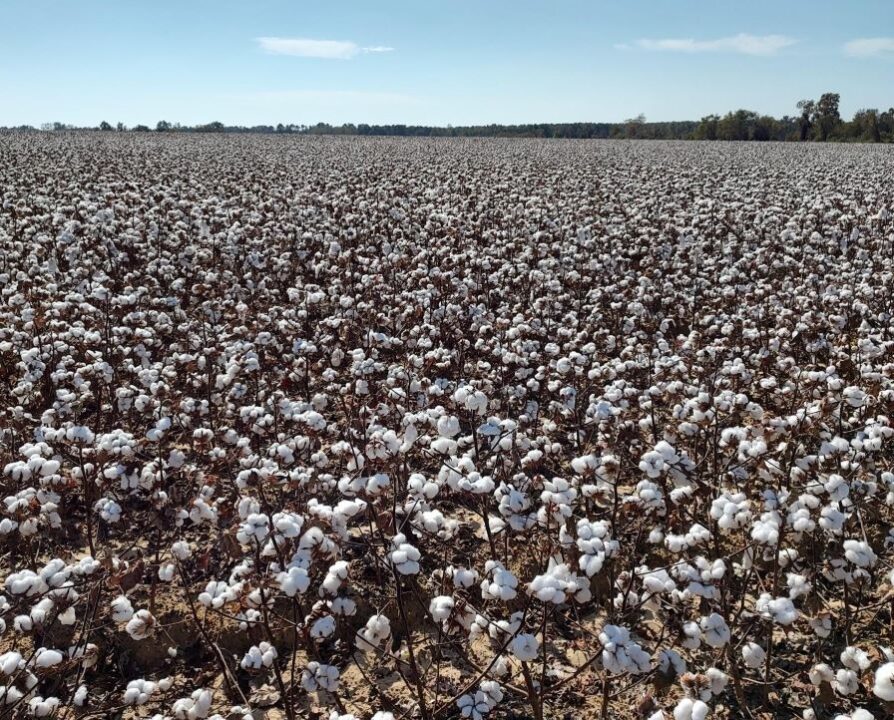When Markets Shift Merchants Must Follow the Spindles
Cotton merchandising is now more global in nature than ever before in its history. Spinning factories and textile mills, once occupying the landscape near production areas, have moved to markets where labor costs are low to minimize operational costs. The mass exodus of textile mills from traditional locations to Asia, combined with new production powerhouses because of technologies such as Bt cotton, has changed the face of the cotton industry.
In some markets, merchants find themselves close to production zones but far from consumption areas. In newer markets, merchants may be closer to their mill customers, but further from their cotton suppliers. In other places like Western Europe, merchants find themselves in the middle, far from both markets but looking to stay in the game.
Western Europe’s cotton production has experienced a downturn during the last 5 to 10 years. Greece leads production in the area and is the eighth largest cotton producing country, growing 1.4 million bales in 2006/07 — a 33% decrease from 2002. At the same time, Western Europe’s spinning and weaving industries have declined as well. Merchants located in these once dominating cotton areas look for other markets, both for procurement and selling, and work to bridge the gap between production and consumption areas.
Swiss-based Linado International S.A. exemplifies this trend. Linado International deals primarily with Sudanese ELS cotton, selling it to mills in India, Pakistan, Bangladesh, and Thailand. At one time, the company sold cotton to Western European companies, but those times have passed, according to Managing Director Mojgan Khamsy.
“Europe’s textile business has completely shifted to the East. The high level of labor costs is the factor that moves most businesses to the countries where you have cheap labor, and cotton is not different. It requires labor like everything else,” Khamsy said. “We used to work a lot in Germany, and we used to sell a lot of ELS cotton in Italy, but Italy’s textile market during the past five years has gone down the drain. Everything has moved to either Eastern Europe or the Far and Middle East.”
The eastern migration of textile mills represents a market shift for Khamsy, but her company is not the only one adjusting to the change. Other Western European companies have adapted to the transition as well, learning that the cotton market is now more global than ever. Linado once purchased cotton from Sudan and sold it to regional countries, but those times have changed.
“Just because a company is situated in Switzerland doesn’t mean that they are working in Switzerland. Cotton is a very global business, and that is what I love about it. I wake up in the morning and speak with five or six countries everyday. I have the first phone call from Japan at 7:00 in the morning, then India about 10 o’clock, followed by Bangladesh and Pakistan,” Khamsy said. “Ninety percent of the cotton companies in Europe do exactly like me. There are other cotton companies situated in Switzerland, but I can tell you that considering the miniscule spinning capacity of Switzerland, not one single one of them finds Switzerland as his main market, because this country doesn’t have any textile business. The cotton business in Western Europe is small compared to the Far East.”
Change Is Good
Adapting to change can be difficult, but it is the unavoidable nature of the cotton business as our world is constantly changing. The bullish Asian textile market is fueling a consumer demand that’s expected to eclipse 125 million bales of cotton next year. Population increases overall demand, and growing middle class economies look for higher quality goods. Both of these factors make the market ripe for Khamsy’s business. As trade barriers come down, merchants in Europe and around the world benefit.
“We work in markets which are all doing very well. India has come up very much and the better it does, the better for my business. Even though my office is in Switzerland, my business is in the East. As international laws open up the markets of these countries to Europe, textile business will be more positive for this part of the world,” Khamsy said.
But merchants aren’t the only beneficiaries of liberalized trade laws. When inputs such as labor costs are lowered and trade barriers are reduced, consumers often see better prices at the retail level. Consumer purchasing power then increases, which fuels economic growth and creates more demand, giving boosts to all businesses along the supply chain. However, production facilities with higher overhead — like textile mills in Europe and the United States — cannot compete in this market.
“And because of this, especially for the consumers in this part of the world, prices have come down. When you looked at the retail shops before, clothing was more expensive, but now it is less because we have all of these products from China and India. Before you could buy a suit for $300, now you can buy the suit for $150,” Khamsy said. “Everything has moved down in price because of the competitiveness, and this is another reason why the textile business in Western Europe is suffering, because they cannot make shirts or other things for the same price as in China and Bangladesh.”
Not A Perfect World
For Khamsy, the increasingly global nature of the cotton and textile trade is a boon for her business, but some difficulties arise from the situation, especially when there is too much involvement from governments. Specifically, Khamsy said, United States sanctions on Sudan impact how she does business, because international banks are not allowed to finance companies that work with Sudan.
“My biggest challenge is how to continue to work with Sudan due to American sanctions on Sudan, because of the political issue of Darfur. About three years ago, I was working with many banks who accepted financing operations with Sudan — but one by one they stopped after the United States threatened to withdraw their banking licenses in U.S. territories if they continue to work with Sudan. They decided to stop working with Sudan as their stake of business in U.S. territories was too important and too big to jeopardize. Last month I received news from my main banker who said he also might stop working with Sudan. These big banks in Switzerland don’t want to lose the prosperous U.S. market, so they have accepted not to work with Sudan,” Khamsy said.
In addition to the impact that the sanctions have had on her business, Khamsy said the Sudanese people, not the government, are the real victims of sanctions and government subsidies which she believes distort the marketplace. In the end, local farmers and peasants who earn a living through cotton are hurt the most, while the government finds other partners to sustain its operations.
“The Sudanese farmers are poor and they really need the money, and if the international world stops working with this country, it gets worse and worse for these people who won’t have any income. So the Sudanese civilians suffer directly as a result of U.S. sanctions. The president of Sudan is turning away from America to other countries like China where he can get support, so the sanctions don’t work. The sanctions just destroy the country and the civilians,” said Khamsy.
If Khamsy’s business acumen seems different from other corporate directors, it’s because of her philosophy of international relations. In this global domain of the new world cotton industry, Khamsy believes ethics and cooperation is more important than ever before. Decisions made in government offices for political reasons directly affect the daily lives of millions of people in the most remote parts of the world. Politics affects trade, and trade affects livelihoods of farmers.
“The fact is that business is business, but there has to be some ethics in the business. Everybody wants to survive and make good money, but you have to remember that the world is like one person with different parts: hands, feet, etc. All parts constitute the same being and directly affect each other in some way. Every decision and action affects all of us globally,” Khamsy said.
“I don’t like getting into politics, but unfortunately for business, especially this business, it is very closely related to politics, so all of these political decisions against undeveloped nations are going to boomerang back to developed nations, and they are going to come back to hurt the developed nations in the future. We have to think more globally and learn to make decisions taking into consideration the benefit of the whole world, and not just our own part of it.”









